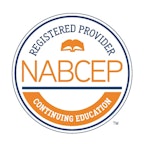40-Hour NABCEP Advanced Energy Storage Certification Training

About this course
This course is developed and taught by Sean White and includes lectures from solar legend Bill Brooks.
The NABCEP ESIP exam is perhaps the most difficult NABCEP exam ever, so you will need to put extra effort into studying hard and do not think that you will pass, just because you have your PVIP certification. Do not feel bad if you have to take the exam twice, like often happened with the PVIP exam when it was newer. Be sure to study the practice exam questions.
The main instructor for this course, Sean White, is one of HeatSpring's most popular and highest rated instructors. Sean is available to answer questions on the discussion board while you work through the course materials during your one-year session. He is extremely responsive and answers questions in great detail. Sean Answers every question on a daily basis 99.9% of the time.
He is an IREC Master Trainer, was named 2014 Clean Energy Trainer of the Year, has taught tens of thousands of professionals on solar and storage technology, contributed to the development of the NABCEP PV Installation Professional Job Task Analysis, has been a member of the NABCEP PV Installation Professional Technical Committee, and has published 9 books on solar and storage design and installation.
This course includes many references to the National Electrical Code (NEC). It may be helpful for you to get a copy of the NEC, or you can use an online version. It's important to note that NABCEP is on the 2020 NEC for the ESIP exam. Additionally, the ESIP exam allows you to have a hard copy of the 2020 version of NFPA 855 Standard for the Installation of Stationary Energy Storage Systems and the 2021 version of NFPA 70E Standard for Electrical Safety in the Workplace. It is recommended to study, own and use all of these references. This course has information on Articles of the NEC and NFPA 855, which Bill Brooks was intimately involved with writing and are explained in detail by Bill.
Sean was the first person to get the NABCEP ESIP certification in January 2024. You can check the NABCEP Certified locator to see how few people there are with the ESIP and you can get your name published on this exclusive list.
Learning Objectives
- Energy Storage Systems and the National Electrical Code (NEC)
- Advanced best practices for Energy Storage System design, installation, commissioning, and sales
- Prepare for the NABCEP Energy Storage Installation Professional Certification Exam
- NABCEP Approved Advanced Training Hours for every NABCEP Energy Storage and PV Certification
This course is included in this bundle
Course outline
Welcome • 14 assignments
Orientation Materials
Module 1 • 111 assignments
Introduction to NABCEP ESIP JTA and Applicable Codes and Standards
Module 2 • 19 assignments
National Electrical Code (NEC) - Storage Related Articles
Article 705 Interconnected Power Production Sources
Article 706 Energy Storage Systems
Article 710 Stand-Alone Systems
Article 712 DC Microgrids (712 was merged into 705 in the 2023 NEC, which does not change much on what you do)
Article 625 EV Power Transfer System
And more!
Module 3 • 22 assignments
Safety, Wire Sizing, Building Codes and Fire Codes
Module 4 • 22 assignments
National Electrical Code - Article 690
Note that the very first thing on the ESIP JTA says we should understand PV: ESIP JTA: Domain 1: Development Task 1: Understand the Technologies and Applications Knowledge of: a. Power generation sources (e.g., photovoltaic [PV], engine generator, utility, wind) So, just like with the NABCEP PV exams where we should understand energy storage, with the NABCEP energy storage exam, we should also know PV.
https://www.nabcep.org/wp-content/uploads/2023/11/NABCEP-ESIP-JTA.pdf
Module 5 • 7 assignments
Energy Storage Practice Exam
NABCEP Energy Storage Installation Professional (ESIP) Practice Exam
If you do not see this extra "course" in your account, let us know and we will set you up.
Thanks!
Sean
Module 6 • 62 assignments
Question-by-Question Practice Exam Review
Notes:
1. There are some questions here that talk about PV systems, however the same reasoning will be for an ESS, so these questions are relevant. Things like ac inverter circuits are the same for ESS and PV systems.
2. Also note that the very first thing on the ESIP JTA says we should understand PV:
ESIP JTA:
Domain 1: Development
Task 1: Understand the Technologies and Applications
Knowledge of:
a. Power generation sources (e.g., photovoltaic [PV], engine generator, utility, wind)
So, just like with the NABCEP PV exams where we should understand energy storage, with the NABCEP energy storage exam, we should also know PV.
https://www.nabcep.org/wp-content/uploads/2023/11/NABCEP-ESIP-JTA.pdf
Conclusion • 9 assignments
Feedback and Additional Resources
Continuing Education Units
Approved for the following CEUs
- NABCEP Advanced Credit Hours
- NABCEP NEC
- NABCEP JTA
- NABCEP RE Elective
- NABCEP Building or Fire Code
- NABCEP PV Associate Renewal
NABCEP Registered Provider

This course counts towards the training requirements for taking NABCEP professional certification exams and CEUs for renewing all certifications.
Instructors

Sean White
Sean White was the 2014 Interstate Renewable Energy Council Trainer of the Year. He is an IREC Certified Solar PV Master Trainer and has authored several books on solar. He contributed to the development of the NABCEP PV Installation Professional Job Task Analysis and has been a member of the NABCEP PV Installation Professional Technical Committee. Sean is a...

Bill Brooks
Bill Brooks PE, of Brooks Engineering LLC, has over 30 years of experience designing, installing, and evaluating grid-connected PV systems. More than 12,000 installers and inspectors have attended his courses throughout the U.S. and abroad. His field troubleshooting skills have been valuable in determining where problems occur to focus training on those issues of...
Frequently asked questions
Full FAQHow does this course work?
How long do I have access to the materials?
How long does this course take to complete
You can move as fast or slow as you want through the course materials. Since the course includes 6 modules, we recommend a pace of working 5-10 hours per week for 6 weeks. Some students power through it all into one week, some take a whole year. You can always rewatch videos or skip ahead and come back.
Almost all of our students are working professionals in the industry so we try to make the course as flexible as possible so it can be completed alongside a full time job. We will send you weekly emails to help you push through the material but those emails are just informational and you can complete the course at your own pace.
After you complete all of the course materials and pass all of the quizzes, you can sign the honor code and request a certificate of completion. The certificate of completion will include CEU hours and can be used as documentation with NABCEP.
Does this course qualify me for the NABCEP PV Design Specialist Certification or other NABCEP PV Certifications?
PV Certification exam. It also counts for sub-categories of hours (NEC etc) but the number of hours varies for each NABCEP credential.
To see exactly how many hours this course counts for, please use our 3-step NABCEP Credential Course Finder .
What version of the NEC is used for the ESIP exam?
Would you please help me to understand how your course may differ from other online options (i.e. Solaraigen, Everblue, etc)?
Our course is taught by expert instructor Dr. Sean White. You get access to all of the course materials as soon as you enroll and can ask Sean questions on the discussion board. Sean is one of our most highly rated and reviewed instructor and answers every question typically within one business day, usually in great detail. You can optionally read through all of the past questions and answers from other students.
The course materials are actually a lot more than 40 hours of content, but the course is approved by NABCEP for 40 Advanced PV Training hours towards the NABCEP PV Certification exams. The course includes over 50 hours of core content as well as an additional 38 hours of optional content.
Sean is an IREC Master Trainer and was named trainer of the year. He is also an author with several books on PV Installation one of which you will need for the course. He will connect with you on LinkedIn.
So the structure of this course connects you with an expert who can answer your questions, and also provides a large amount of high quality content related to both passing the NABCEP exam as well as instruction on advanced solar PV and energy storage installation and design topics.
The course is intended for industry professionals so our online format is flexible and you can move as fast or slow as you want. You can see the (mostly) outstanding student feedback here for this course.
Is there a certificate of completion?
Does this course cover sections from NEC Chapter 2? If so, which sections?
250 Grounding and Bonding
Sections:
250.50 Grounding Electrode Systems
250.52 Grounding Electrodes
250.53 Grounding Electrode System Installation
250.54 Auxiliary Grounding Electrodes
250.64 Grounding Electrode Conductor Installation
250.66 Size of ac GEC
250.120 EGC Installation
250.122 Size of EGCs
250.166 Size of dc GEC
240 Overcurrent Protection
Sections:
240.4 Protection of Conductors
240.5 (Will be in 2020 NEC updated material in January)
240.6 Standard Ampere Ratings
240.21 Location in Circuit (Feeder Taps)
Much of the details of overcurrent protection and wire sizing for Solar PV Systems is in Article 690. We do cover the specifics of wire sizing, which can be related to wire sizing of non-solar loads.
And a little bit of:
200 Use and Identification of Grounded Conductors
Sections:
200.6 Means of Identifying Grounded Conductors
230 Services
Sections:
230.2 Number of Services
230.82 Equipment Connected to Supply Side of Service
Much of the Chapter 2 material that we do cover is referenced when Article 690 Solar Photovoltaic Systems, Article 705 Interconnected Power Production Sources, or Article 706 Energy Storage sends us to Chapter 2.
I am seeking to get NABCEP PVTS certified, I will need 32 hours or training. I am confused as this course appears to offer 40 hours of credits but at the bottom it says only 20 are applicable for PVTS certification, can you please clarify? I see another 20 for JTA, what is this for?
NABCEP only counts 20 hours for this course towards the PVTS certification because that's all the PVTS applicable content. If you take the course, you would be able to click through other content you don't need, or watch it if you want for your own education.
Yes the 20 JTA is 20 hours of Job Task Analysis CEUs for continuing education requirements. You would need that to recertify every 3 years. To sit for the exam you just need the Advanced Training hours.
For more information, visit the PV Technical Sales Certification detail page. The Megawatt Design and Comprehensive Solar Plus Storage courses offer more Advanced Training hours towards the PVTS. And the Photovoltaics and the 2020 National Electric Code (NEC)' course listed there is free and counts for 2 hours, so that would give you the 32 hours total you need.